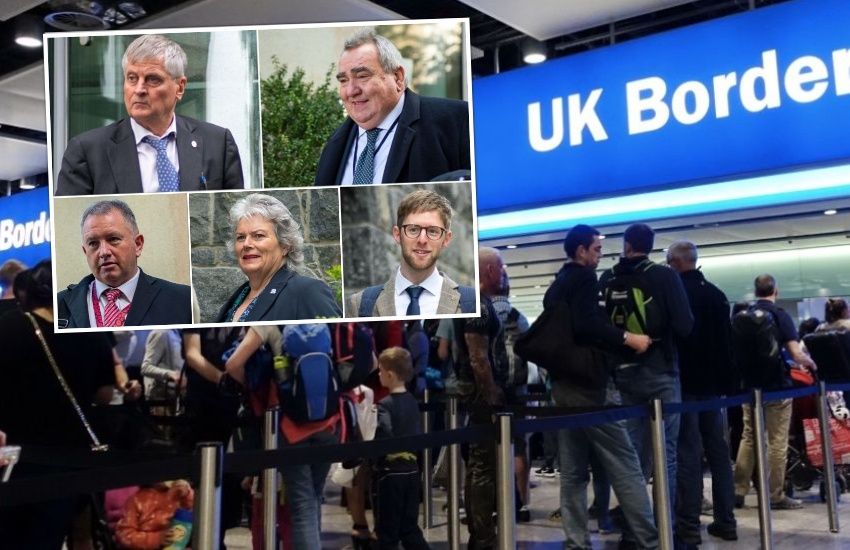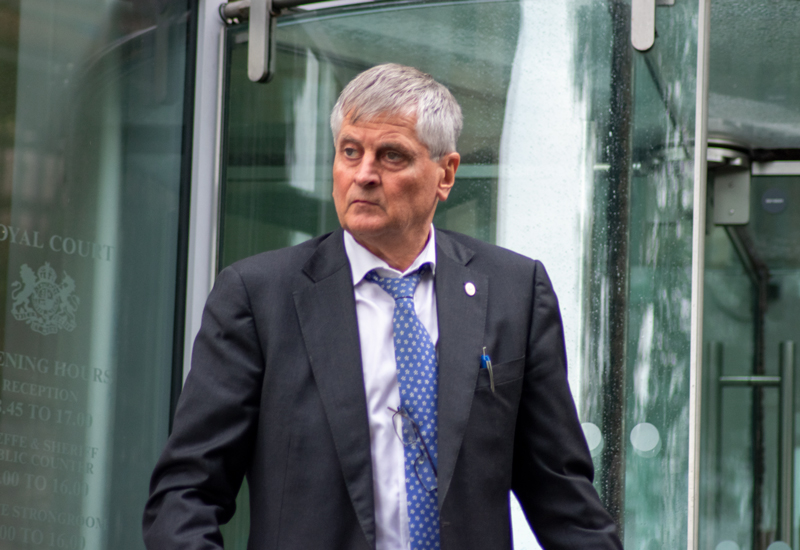


Home Affairs will oppose three amendments laid against its population and immigration policy letter, fearing some would be “discriminatory” and could pose a risk to the Bailiwick’s participation in the Common Travel Area.
Deputy Rob Prow, President of Home Affairs, labelled some of the amendments “potentially dangerous and also unnecessary”.
The Committee wants to relax population controls to prevent any reduction in the size of the workforce which would require increasing the total population to just under 70,000 people by the middle of the century.
But two amendments, tabled by Deputies Sasha Kazantseva-Miller and Heidi Soulsby, are proving headache inducing for Home Affairs which will “strongly oppose” each.
Those two deputies want to direct the Committee to investigate whether people from the Common Travel Area – our closest Anglo-Irish neighbour's – could permanently settle in the island more easily.
They also want to see additional job types, specifically those defined as ‘low-skilled’, reclassified so they are captured within long term employment permits.
Home Affairs accepts three other amendments “are not in conflict with the outcomes” of its population review and “in some cases arguably naturally follow on from the strategic population objective”. Therefore, they will not be challenged during debate.

Pictured: Deputy Peter Ferbrache said population was one of the biggest challenges facing the incumbent States' earlier this year.
Home Affairs believes amendment three would treat CTA nationals “more favorably” than those from Europe and further afield, resulting in a “discriminatory” population management law.
“The legal practicalities of this objective remain uncertain. Its objective would also be in conflict with the policy framework that the Policy Letter has proposed, namely, to simplify the Employment Permit Policy process, making it more difficult to both administer and understand within the community for limited benefits,” the Committee said.
The Committee also say amendment four would be incompatible with job types listed under the United Kingdom’s skilled worker visa and therefore could compromise freedom of movement from Guernsey to Britain and Ireland.
“Its objective would breach the clear and established red line in respect of settlement rights for job types that are not aligned with the UK. Population Management and Immigration's conformity with this red line is essential to upholding Guernsey's responsibilities and compliance with its inclusion in the Common Travel Area.
“It is not unreasonable to assume that any significant divergence may result in islanders being subject to passport controls when travelling to the UK and other Crown Dependencies and non-British or Irish islanders no longer benefitting from free movement.”

Pictured: Two out of three of Deputies Sasha Kazantseva-Miller's (left) and Heidi Soulsby's amendments are viewed as damaging by Home Affairs.
The Committee is seeking to replace most roles currently permitted under medium-term arrangements to eight-year long term permits with a pathway to future permanent residency.
Home Affairs says this will allow for greater staff recruitment from across the globe without bureaucratic issues arising out of immigration settlement rights.
Junior roles which may become eligible for longer term residency following professional training would also be protected from having to leave the island within three years if the employer and individual wish to continue local employment.
“It is important to emphasise that, under the new policy framework in the policy letter, the vast majority of positions that qualify for an [Medium Term Employment Permit] will not be lost but will instead be converted to LTEPs,” the Committee said.
Home Affairs will also oppose amendment five which seeks to restrict the total level of net inward migration from a maximum of 300 to 200 “as it is in conflict with the extensive research and data provided through the Review”.

Pictured: Deputy Rob Prow will lead large changes to the population and immigration laws at this weeks States' meeting.
Deputy Prow said: “Our Committee will oppose amendments 3 and 4 in the strongest terms as they both seek to direct work that could place the Population Management regime, or indeed the Island as a whole through its membership of the Common Travel Area, at risk.
“The benefits of this work are likely to be limited, and the work to develop the policy framework set out in the policy letter has already extensively considered the potential options that do not cross any red lines.
“They are potentially dangerous amendments and also unnecessary, as the policy framework we have proposed will make considerable changes to both Population Management and Immigration policy and legislation that will benefit Guernsey's businesses in recruiting workers from outside the island.”
Population growth plan faces challenge in States next week
P&R has "no agreed position" on key population growth plan
Home Affairs plan for more immigration to boost workforce
Highest number of over 65s since records began
Population review to consider "changing economic needs" after covid
Comments
Comments on this story express the views of the commentator only, not Bailiwick Publishing. We are unable to guarantee the accuracy of any of those comments.